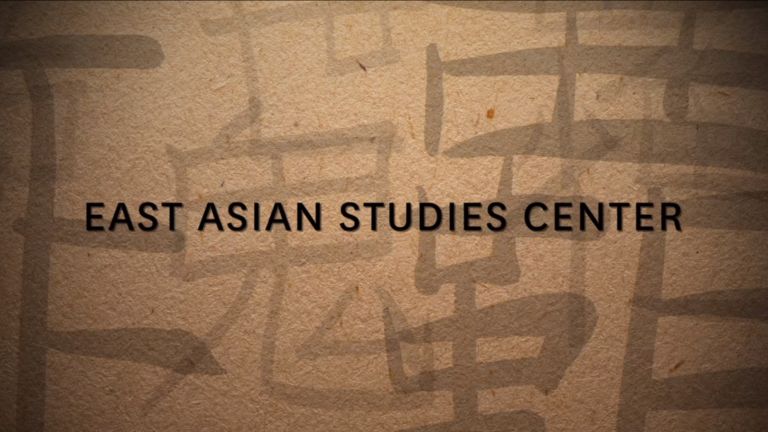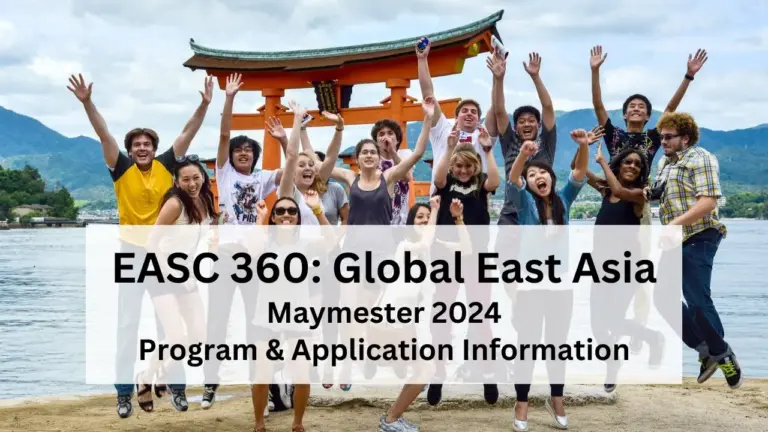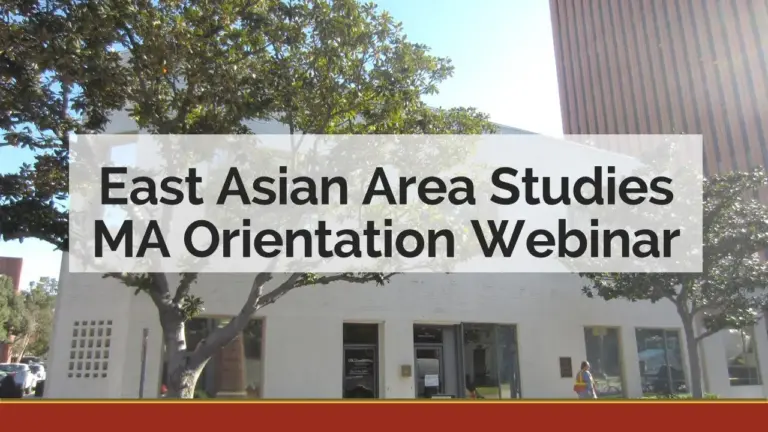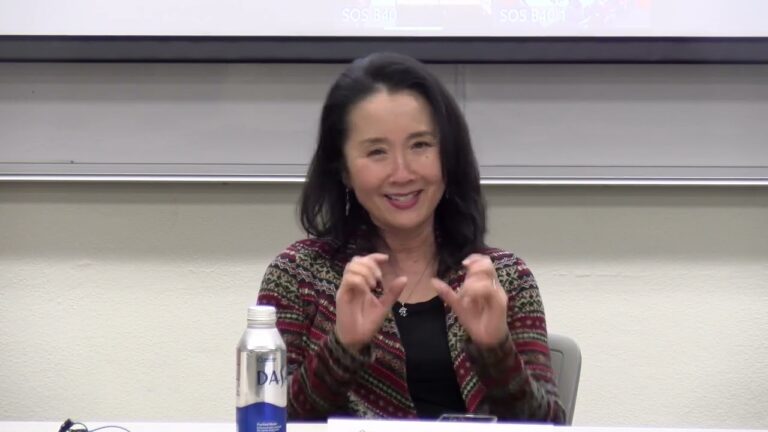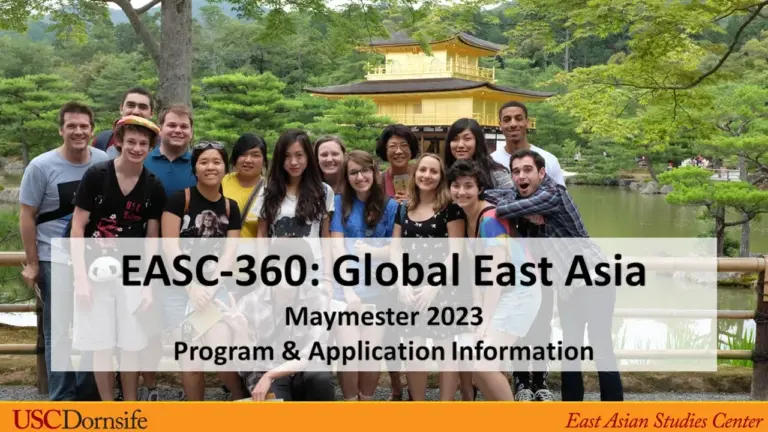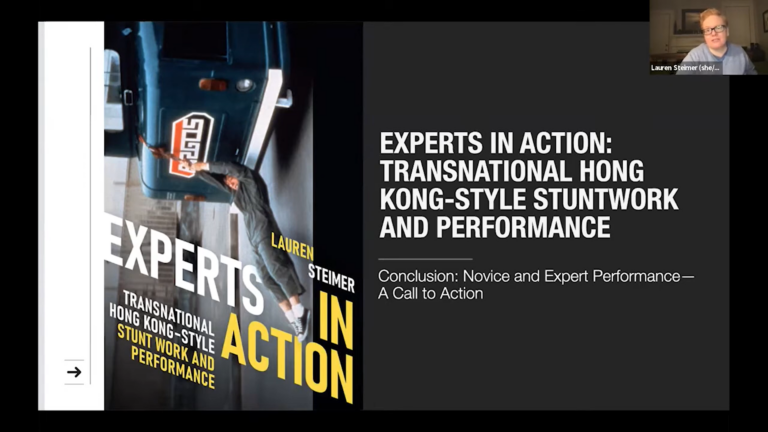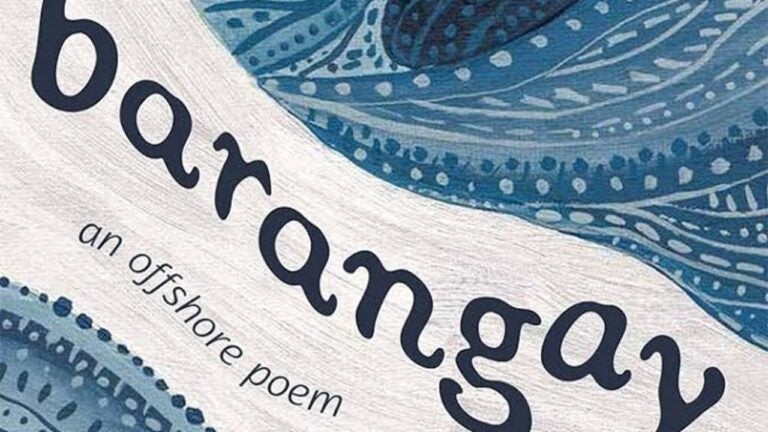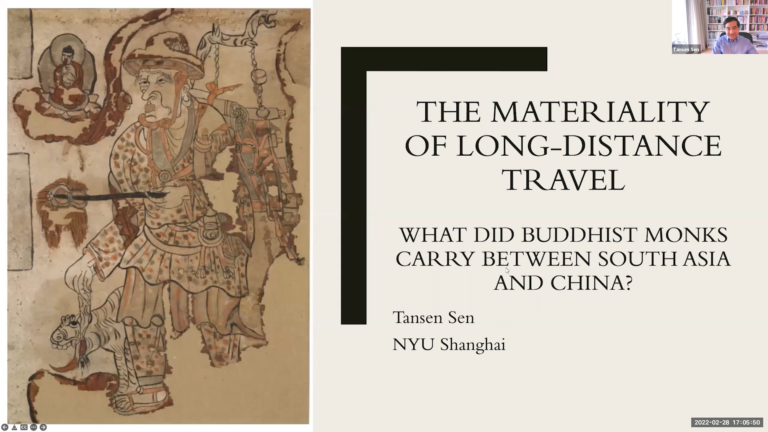East Asian Studies Center
Videos
Filter
March 21, 2024 | This panel discussion titled, "Toyota, Sony, and Sushi: Nisei and the Japan Boom in the US," sheds light on the often-overlooked involvement of second-generation Japanese Americans in facilitating this rise of Japanese exports.
America’s current love affair with Japanese consumer products, popular culture, and tastes stems from an era just after World War II that produced the “Japan Boom.” This panel highlights and explores the hidden role that second-generation Japanese Americans (Nisei) played in this boom in Japanese exports. What were Japan’s postwar export strategies and how and why did Nisei contribute to them as ethnic brokers paving the way for fledging companies such as Toyota and Sony, and new tastes such as sushi to enter the US market?
Each of the panelists addresses a different part of this question. Professor Saori Katada lays out the context of postwar Japan’s international and domestic economic policies. Jon Kaji and Shawn Layden addresses the crucial role played by Nisei for Toyota and Sony, respectively. Atsuko Kanai discusses her Nisei father Noritoshi Kanai and his role in birthing the sushi boom in the US through his business Mutual Trading Company. Finally, Professor Lon Kurashige chairs the panel and introduces the themes connecting the panelists’ talks.
Panelists: Jon Kaji, Shawn Layden, Atsuko Kanai, Saori Katada, and Lon Kurashige.
September 29, 2023 | This information video goes over program information about the Spring 2024 Global East Asia Maymester programs, including a step-by-step guide on how to apply.
Global East Asia (GEA) is a four week upper-division Maymester research course with a study abroad component for USC undergraduate students, made possible by the East Asian Studies Center and USC Dornsife. This intensive program gives students the opportunity to travel and conduct research in Japan. Students from all majors, schools and language backgrounds are eligible to apply and experience East Asia in a unique way.
July 21, 2023 | An informational webinar intended for newly admitted students to the USC East Asian Area Studies MA program.
March 22, 2023 | The East Asia Career Panel is an annual event EASC organizes and is open to all undergraduate and graduate students interested in using East Asian language and area studies skills in their future professions and learning about the different career options available. Our impressive alumni panelists come from professions in fields such as business consulting, entertainment, journalism, non-profit, marketing, and education. The panel was followed by a Q&A and networking opportunity.
October 7, 2022 | This information video goes over program information about the Spring 2023 Global East Asia Maymester programs, including a step-by-step guide on how to apply.
Global East Asia (GEA) is a four week upper-division Maymester research course with a study abroad component for USC undergraduate students, made possible by the East Asian Studies Center and USC Dornsife. This intensive program gives students the opportunity to travel and conduct research in Japan. Students from all majors, schools and language backgrounds are eligible to apply and experience East Asia in a unique way.
April 14, 2022 | The USC East Asian Studies Center has launched another EASC New Book Series for the wider community. This series is organized by Li-Ping Chen, Postdoctoral Scholar & Teaching Fellow in the USC East Asian Studies Center. This monthly series on Zoom will introduce recent publications in Sinophone studies to the USC community and the wider public. This session featured a discussion on Defectors from the PRC to Taiwan, 1960-1989: Anti-Communist Righteous Warriors (Routledge, 2022) with author Andrew D. Morris (Professor of History at California Polytechnic State University, San Luis Obispo) and discussant Dominic Meng-Hsuan Yang (Associate Professor of East Asian History, University of Missouri-Columbia).
March 9, 2022 | The USC East Asian Studies Center has launched another EASC New Book Series for the wider community. This series is organized by Li-Ping Chen, Postdoctoral Scholar & Teaching Fellow in the USC East Asian Studies Center. This monthly series on Zoom will introduce recent publications in Sinophone studies to the USC community and the wider public. This session featured a discussion on Experts in Action: Transnational Hong Kong-Style Stunt Work and Performance (Duke University Press, 2021) with author Lauren Steimer (Associate Professor of Media Arts and Film and Media Studies, University of South Carolina) and discussant Po-Shek Fu (Professor of History, University Of Illinois at Urbana-Champaign).
March 7, 2022 | As beautiful and varied as an archipelago, barangay:an offshore poem (Wolsak & Wynn, 2021) is an elegant new collection of poetry from Adrian De Leon that gathers in and arranges difficult pieces of a scattered history. Adrian De Leon, Assistant Professor of American Studies and Ethnicity converses with Craig Santos Perez, Associate Professor of English and Chair of the Hawaiian, Asian, and Pacific Islander Board in the Office of General Education at the University of Hawai'i, Mānoa.
While mourning the loss of his grandmother who "lived, loved and grieved in three languages," De Leon skips his barangay, which is both a boat and an administrative unit in the Philippine government, over the history of both his family and a nation. In these poems De Leon considers the deadly impact of colonialism, the far-reaching effects of the diaspora from the Philippines and the personal loss of his ability to speak Ilokano, his grandmother's native tongue. These are spare, haunting poems, which wash over the reader like the waves of the ocean the barangays navigated long ago and then pull the reader into their current like the rivers De Leon left behind.
The Materiality of Long-Distance Travel: What did Buddhist Monks Carry between South Asia and China?
March 4, 2022 | The travels of Buddhist monks (and, in some instances, nuns) between South Asia and China facilitated the circulation of ideas, knowledge, and objects. The writings of Chinese Buddhist monks Faxian, Xuanzang, and Yijing have detailed the perilous nature of such travels and pointed to the diverse itineraries these monks took. While there have been numerous studies on the travels of these and other monks, the examination of what they carried during their arduous journeys is still to be examined in detail. This presentation focuses on the daily necessities, gifts, texts, and other items Buddhist travelers carried with them as they traveled through overland and maritime routes. The aim is to explore and formulate a conceptual framework for the materiality of long-distance travel as well as the agency of objects in the Buddhist connections between South Asia and China.
